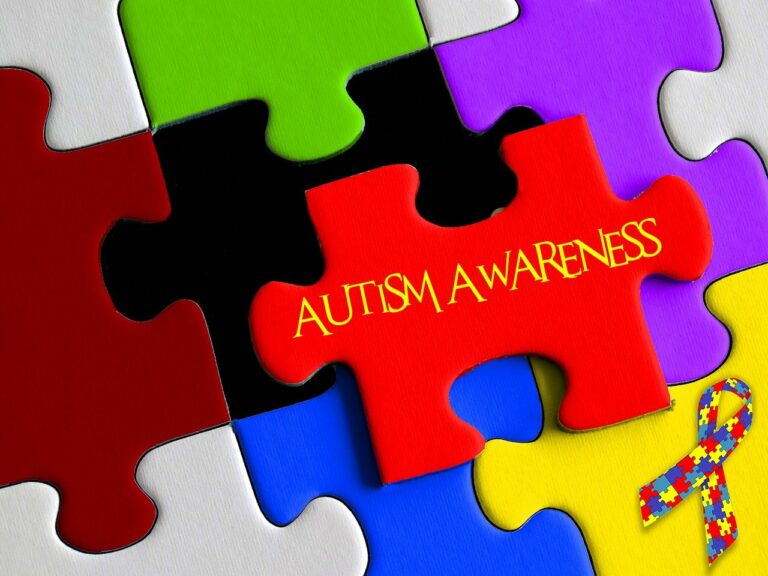How to Support Hearing Health in Individuals with ADHD
world 7 login, mahadev book id login, silver777 login:Living with ADHD can present its own set of challenges, and one aspect that is often overlooked is hearing health. Individuals with ADHD may struggle with auditory processing, focus, and attention, which can all impact their overall hearing health. It is important to support and promote good hearing health in individuals with ADHD to help them thrive in all aspects of their lives. Here are some tips on how to support hearing health in individuals with ADHD.
Understanding the Connection Between ADHD and Hearing Health
ADHD is a neurodevelopmental disorder that affects the brain’s ability to focus, pay attention, and control impulses. Individuals with ADHD may have difficulty processing auditory information, which can impact their ability to follow conversations, stay focused in noisy environments, and understand speech in challenging listening situations.
Research has shown that individuals with ADHD are at a higher risk of experiencing hearing loss and other auditory processing difficulties compared to their neurotypical peers. This is why it is essential to support and promote good hearing health in individuals with ADHD to mitigate the potential impact of hearing-related challenges on their academic, social, and emotional well-being.
Tips for Supporting Hearing Health in Individuals with ADHD
1. Encourage Regular Hearing Check-Ups: Regular hearing check-ups are essential for individuals with ADHD to monitor their hearing health and address any issues promptly. Encourage individuals with ADHD to schedule annual hearing screenings with an audiologist to assess their hearing abilities and detect any changes early on.
2. Limit Exposure to Loud Noise: Individuals with ADHD may be more sensitive to loud noise, which can exacerbate their auditory processing difficulties. Encourage them to limit their exposure to loud noise by using ear protection in noisy environments, such as concerts, sporting events, and construction sites.
3. Create a Quiet Learning Environment: Individuals with ADHD may struggle to focus and concentrate in noisy environments. Create a quiet learning environment at home or in the classroom to help them stay focused and engaged in academic activities. Minimize background noise, such as television, music, or loud conversations, to create a conducive learning environment for individuals with ADHD.
4. Use Assistive Listening Devices: Assistive listening devices, such as FM systems, personal amplifiers, and noise-canceling headphones, can help individuals with ADHD better understand speech and communicate effectively in challenging listening situations. Encourage individuals with ADHD to use assistive listening devices to improve their listening abilities and boost their confidence in social interactions.
5. Teach Listening Strategies: Individuals with ADHD may benefit from learning listening strategies to improve their auditory processing skills and communication abilities. Teach them active listening techniques, such as maintaining eye contact, nodding in response, and asking clarifying questions, to enhance their listening and understanding of spoken information.
6. Practice Mindfulness and Relaxation Techniques: Stress and anxiety can impact auditory processing and attention in individuals with ADHD. Encourage them to practice mindfulness and relaxation techniques, such as deep breathing, meditation, and progressive muscle relaxation, to reduce stress levels and improve their ability to focus and concentrate on auditory tasks.
7. Provide Visual Cues and Written Instructions: Individuals with ADHD may benefit from visual cues and written instructions to supplement auditory information and enhance their understanding of complex tasks. Use visual aids, such as charts, diagrams, and illustrations, to reinforce key concepts and facilitate learning for individuals with ADHD.
8. Promote Healthy Lifestyle Habits: Good overall health is essential for maintaining good hearing health. Encourage individuals with ADHD to adopt healthy lifestyle habits, such as eating a balanced diet, exercising regularly, getting an adequate amount of sleep, and avoiding smoking and excessive alcohol consumption, to support their hearing health and general well-being.
9. Seek Professional Support: If individuals with ADHD experience persistent hearing difficulties or changes in their auditory processing abilities, seek professional support from an audiologist, speech-language pathologist, or otolaryngologist. These professionals can assess their hearing abilities, provide individualized interventions, and recommend appropriate treatments to improve their hearing health and communication skills.
10. Educate Others About ADHD and Hearing Health: Raise awareness about the connection between ADHD and hearing health among family members, teachers, healthcare providers, and other individuals in the community. By educating others about the unique challenges faced by individuals with ADHD in relation to hearing health, you can create a supportive and inclusive environment that promotes their overall well-being and success.
FAQs
Q: Can ADHD impact hearing health?
A: Yes, research has shown that individuals with ADHD are at a higher risk of experiencing hearing loss and other auditory processing difficulties compared to their neurotypical peers. ADHD can impact auditory processing, focus, and attention, which can all influence an individual’s ability to hear and communicate effectively in various listening situations.
Q: How can I support a child with ADHD in improving their hearing health?
A: To support a child with ADHD in improving their hearing health, encourage them to schedule regular hearing check-ups, limit their exposure to loud noise, create a quiet learning environment, use assistive listening devices, teach listening strategies, practice mindfulness and relaxation techniques, provide visual cues and written instructions, promote healthy lifestyle habits, seek professional support when needed, and educate others about the connection between ADHD and hearing health.
Q: What are the signs of hearing difficulties in individuals with ADHD?
A: The signs of hearing difficulties in individuals with ADHD may include difficulties following conversations, staying focused in noisy environments, understanding speech in challenging listening situations, responding inappropriately to auditory information, exhibiting signs of distractibility, impulsivity, or inattention in communication, and expressing frustration or anxiety in social interactions that involve auditory processing.
Supporting hearing health in individuals with ADHD is vital for their overall well-being and success. By implementing these tips and strategies, you can help individuals with ADHD improve their auditory processing, communication, and listening skills, and enhance their quality of life. Remember to prioritize regular hearing check-ups, create a supportive learning environment, use assistive devices, and educate others about the unique challenges faced by individuals with ADHD in relation to hearing health. Together, we can empower individuals with ADHD to thrive and reach their full potential in all aspects of their lives.







